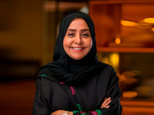
On March 8, International Women's Day will again celebrate the remarkable contributions of women and recognize their achievements. Previously, women were traditionally relegated to subordinate roles in society, including within the medical profession. However, times have changed, and more women are studying and practicing medicine. Pursuing a career in medicine also opens opportunities for leadership positions in the health care field and academic medicine. But women can encounter challenges when trying to attain these leadership positions.
Common challenges faced by women include an incorrect perception that they are not effective leaders and won’t be offered leadership positions based on that prejudicial viewpoint. In addition, for women who are in leadership positions, their status and performance as a leader may be judged by different standards than their male counterparts, based on perpetuating stereotypes and biases regarding the imagery and characteristics of a leader. This means capable women can either be denied leadership positions or be deterred from taking them on.
Similarly, women often find it difficult to attain mentorship that professionally stretches their leadership skills that prepares them for desired leadership roles, thus negatively impacting their growth and development. Mentors typically provide guidance, advice, and support, helping mentees navigate their career paths, develop new skills, and overcome challenges.
The challenges that women face while pursuing leadership roles can be overcome by supporting the development and empowerment of women. Many countries across the Middle Eastern Northern Africa (MENA) region, such as the United Arab Emirates (UAE), Saudi Arabia and Egypt, have launched significant initiatives to promote female empowerment, diversity and equality in the workplace.
For example, the UAE established its Gender Balance Council in 2015 to establish greater gender equity while promoting female empowerment. Similarly, Saudi Arabia has set forth its ambitious Vision 2030, with one of its goals being to increase women's participation in the workforce, allowing them to drive and hold leadership positions. Egypt is also focusing on increasing female representation in decision-making roles through its National Strategy for Women’s Empowerment 2030.

Whilst training to become a doctor is both challenging and gratifying, here are five tips that every female aspiring to be a medical student should keep in mind to prepare themselves for medical school and future roles requiring leadership:
1- Have confidence:
Women must believe in themselves and that they have what it takes to succeed in their pursuit of becoming a doctor. They should trust in their passion for medicine and their commitment to making a difference in the lives of others.
2- Keep your passion alive:
Every medical student will need to keep their passion for medicine alive; and there are a variety of activities that can help pique their inspiration and curiosity and develop their sense of altruism. For example, to continuously learn and find joy in helping others, consider volunteering at hospitals, or volunteering with clubs at your school or clubs in your community. Always remember that doctors have a great impact on society by helping and caring for people in a time of need. So, participating in these volunteer activities helps build the character and humility you will need as a medical student and a future doctor.
3- Have a game plan:
To get into medical school, aspiring students need to have a game plan that includes academic milestones, extracurricular activities, and gaining relevant experience. They should hold themselves accountable in achieving this plan. Talk to academic advisors, or doctors you shadow, and let them be mentors who guide you towards successfully achieving the goals you have set in your game plan.
4- Challenge yourself:
Aspiring medical students should always challenge themselves to develop leadership skills. For example, they can take on leadership roles in school clubs, community organizations, or research projects. Developing leadership skills will serve them well as future healthcare professionals and leaders.
5- Seek out medical opportunities:
To gain exposure to the medical field, aspiring female students can try volunteering at hospitals, participating in health care-related internships, or shadowing doctors. This will give them valuable insights into the day-to-day life of a doctor and help confirm their passion for medicine.
To conclude, this International Women’s Day acts as a reminder for us to appreciate the women who made history in medicine and excelled despite all the roadblocks they faced. It is also an opportunity to honor the remarkable contributions of women in the MENA region while advocating for their rightful place as leaders in health care and academic medicine Women, particularly those in the medical profession, deserve the same level of mentorship and opportunities as their male counterparts. Thanks to many of the country-level initiatives being implemented, a sound level of Diversity, Equity and Inclusion (DEI) is slowly but steadily gaining momentum. These DEI initiatives are crucial in preparing future women for their future as doctors and leaders in health care and academic medicine.



























